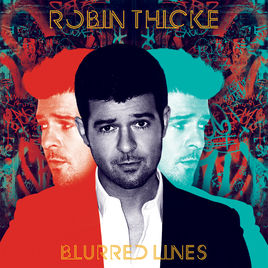 Some years ago, when I was on the Marquette Law Review editorial board, my responsibilities included obtaining a rudimentary copyright release from authors whose articles we had agreed to publish. In fact, I signed the form myself when I published my Note. If we did not obtain the release, we would not publish the article. I presume this is still the Review’s policy, although current members can confirm or deny it, and I also suspect that many journals have a similar procedure. If the “open access” movement continues to gather steam, however, one can wonder how long this and similar practices will continue. For example, Professor Steven Shavell recently posted a draft, pre-publication article for public comment arguing that we should abolish copyright for all academic writings.
Some years ago, when I was on the Marquette Law Review editorial board, my responsibilities included obtaining a rudimentary copyright release from authors whose articles we had agreed to publish. In fact, I signed the form myself when I published my Note. If we did not obtain the release, we would not publish the article. I presume this is still the Review’s policy, although current members can confirm or deny it, and I also suspect that many journals have a similar procedure. If the “open access” movement continues to gather steam, however, one can wonder how long this and similar practices will continue. For example, Professor Steven Shavell recently posted a draft, pre-publication article for public comment arguing that we should abolish copyright for all academic writings.
The open access debate goes well beyond the world of academia, and what follows is only a brief summary. Many open access advocates support both free online access to works as well as the granting of a license that permits copying and redistribution of the work. They underscore the broad societal benefits that would flow from broad public access to such information. Opponents of the movement have argued that true open access is impossible because publishers could not then recover the costs of their work, and that all but a few scholarly journals would cease to exist. The usual response to this criticism is that the journals could simply charge the authors fees to cover their costs in publishing such works (and, in turn, that the fees would likely be paid by the authors’ university employers). Perhaps this counterargument is less attractive given the current global economic downturn.
I think the fundamental question is the following: what motivates academic authors to write and publish journal articles?
My sense is that they do so primarily in order to garner scholarly acclaim and, at least at first, to secure tenure. It therefore seems to me that such authors would obtain the maximum benefit from the broadest possible distribution of their articles. Professor Shavell applies these conclusions to all academic works. However, I understand why the arguments may not hold with respect to other academic publications such as textbooks, given the more predominantly economic reasons for which academic authors might undertake such projects.
I am, of course, curious as to whether the abolition of copyright in either form (for academic journal articles, or for all academic works) would be of concern to this blog’s readers.


When I began working in law libraries, 20 years ago, one of the first things I noticed was how inexpensive the law reviews were. That’s because I came from an academic medical library where the costs for journals was (is) extremely expensive.
I mention that because the presumption that David seems to make in this post is that somewhere, deep in our souls, there resides the altruistic desire to make information available for use by others in as reasonable a fashion as possible. Perhaps he’s espousing the moral ground that one should not be publishing for the sake of (gasp) making money.
I don’t want to say that this desire should not be out there, but one point of copyright is to guarantee the copyright holder the opportunity to profit from his or her work. That said, and as I said at the beginning of this, I was surprised by the inexpensive nature of law reviews – that is until I learned that they are published (by and large) by the law schools, and edited by students, in part for the academic achievement and prestige that students gain by being on Law Review.
Not so with other disciplines where journals may be commercially published at a very expensive cost. In many disciplines, publishing in peer reviewed journals, and the popular journals of one’s field are very important. Most of these journals are available electronically, as are most law reviews, and so while access to the content may be fairly easy, it still comes at a price. Libraries and other subscribers pay a considerable amount for services that make journals available electronically, and I doubt that the commercial publishers would willingly forego these revenue sources for the altruistic desire.
So what of Open Access? There is certainly a trend toward open access, and perhaps authors who are less concerned about the profit motives than are publishers, may find open access desirable, but I doubt that the commercial publishers will latch onto this with much gusto, as their motives are driven, at least in part, by profit.
But then again, what do I know? Maybe the altruistic desire is alive and strong.